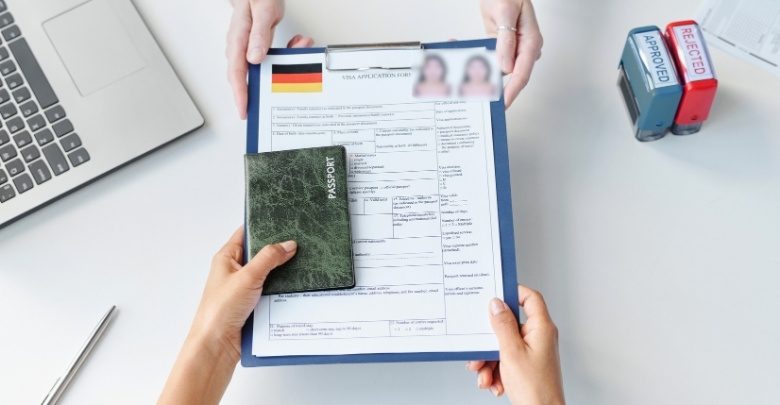Bangkok is a popular hub for international conferences, attracting professionals from around the globe. With its rich culture and dynamic business environment, the city hosts a variety of events across different fields. This raises an important question: Do you need a visa to attend a conference in Bangkok?
Yes, most international attendees will need a visa to enter Thailand for a conference. The specific visa required depends on your nationality and the nature of your visit. Typically, you may apply for a Visitor Visa or a Business Visa based on your planned activities during the conference. So, check the visa requirements in advance to ensure a smooth application process.
Are you curious about the details regarding conference attendance and visa requirements? This article will provide you with all the necessary information, making your planning process easier and more efficient.
Significance of Attending a Conference in Bangkok, Thailand
It can be an invaluable experience for professionals from all industries to attend a conference in Bangkok. Bangkok, as a vibrant city and a hub for international business, hosts a multitude of conferences that cater to diverse fields such as technology, healthcare, finance, and more. The significance of these conferences extends beyond mere knowledge acquisition; they offer a platform for networking, collaboration, and innovation.

Conferences in Bangkok provide an excellent opportunity to engage with industry leaders and experts, share insights, and discuss the latest trends and challenges facing various sectors. These events often feature keynote speakers, panel discussions, and workshops that are not only informative but also interactive, allowing attendees to participate actively and gain practical knowledge.
Moreover, the global nature of these conferences attracts a diverse audience, making it an ideal environment for creating international relationships and partnerships. By attending popular international conferences in Bangkok, professionals can gain a distinct advantage, learn best practices, and return to their organizations with new ideas and strategies that can lead to growth and development.
Do You Need a Visa to Attend a Conference in Bangkok?
Yes, most international attendees will need a visa to attend a conference in Bangkok. The specific visa type required depends on your nationality and the nature of your visit. Generally, a Visitor Visa (Tourist Visa) suffices for attending conferences without engaging in work activities. In some cases, a Business Visa may be necessary if you plan to participate in business-related tasks beyond attending the event. Check the latest visa requirements with the Thai embassy or consulate well in advance to ensure a smooth application process and successful entry into Thailand.
Types of Visas for Conference Attendance in Thailand
Different visas cater to various purposes, such as tourism or business, and knowing which one fits your situation can save you time and potential complications. This section will outline the primary visa categories relevant to conference attendance, helping you make informed decisions as you prepare for your trip.
Visitor Visa (Tourist Visa)
The Visitor Visa is suitable for those attending conferences in Thailand. This visa allows individuals to participate in meetings, seminars, and workshops without engaging in employment activities. Typically valid for 30 days, this visa can often be extended for another 30 days if necessary. Ensure that your passport remains valid for at least six months beyond your planned departure date from Thailand.
Business Visa
A Business Visa is required for individuals planning to engage in more extensive business activities while in Thailand. This visa is suitable for those who will be conducting business negotiations, attending trade shows, or participating in activities beyond just attending a conference.
The Business Visa generally has a longer validity period compared to the Visitor Visa. Applicants should also prepare to provide supporting documentation, such as an invitation letter from a Thai business or organization, to strengthen their application.
Visa Exemption
Certain nationalities may enter Thailand without a visa for tourism purposes. However, this exemption usually extends to activities such as attending conferences that involve business. If you’re exploring ways to attend upcoming conferences in Bangkok, be sure to check the visa exemption list for your nationality and the duration of stay allowed. You should be mindful of specific entry conditions, such as the length of stay and whether proof of onward travel is required.
Application Requirements for Each Visa Type
- Visitor Visa (Tourist Visa): Applicants need to submit a visa application form, a valid passport, and proof of accommodation. A conference invitation letter may also be required, demonstrating the purpose of the visit.
- Business Visa: This typically requires a more detailed application, including the visa application form, passport, conference invitation, and additional documents like a letter from your employer or organization detailing your visit’s purpose.
- Visa Exemption: Travelers must present a valid passport and proof of onward travel. No additional documentation is usually needed, but you should confirm the specific conditions of entry for your nationality.
How to Apply for a Visa to Attend a Conference?
The application process for a conference visa in Thailand can seem complicated, but it can be simplified by dividing it into manageable steps. The key to a successful application is to know what the requirements are and to prepare your documents in advance.
- Determine the Appropriate Visa Type: Before applying, determine whether you need a Visitor Visa or a Business Visa based on your planned activities. If you will only be attending the conference, the Visitor Visa is usually sufficient.
- Complete the Visa Application Form: Fill out the visa application form available on the Thai embassy or consulate website. Ensure all information is accurate and complete to avoid delays.
- Gather Required Documents: Prepare the necessary documents for your application. Commonly required documents include,
-
-
- A valid passport with at least six months’ validity.
- A recent passport-sized photograph.
- A conference invitation letter.
- Proof of accommodation in Thailand.
- Financial statements demonstrating your ability to support yourself during your stay.
-
- Pay the Visa Fee: Once you have completed the application form and gathered the required documents, pay the visa fee as specified by the Thai embassy or consulate. Keep the receipt as proof of payment.
- Submit Your Application: Submit your completed application form and supporting documents to the nearest Thai embassy or consulate. Some applicants may also have the option to apply online, depending on their country.
- Schedule a Visa Interview (If Required): In some cases, you may be asked to attend an interview. Be prepared to discuss the purpose of your visit and provide any additional information if requested.
- Wait for Processing: After submission, the processing time for visas can vary. It’s advisable to apply well in advance of your conference date to allow sufficient time for processing.
- Receive Your Visa: Once your visa is approved, you will receive it stamped in your passport. Ensure all details are correct before you travel.
Common Visa Application Mistakes to Avoid
Applying for a visa can be a complex process, and avoiding common mistakes is essential for a successful application. Being aware of these mistakes can save you time and stress and ensure your application is processed without unnecessary delays. Here are some common mistakes to watch out for:
Incomplete Application Forms
One of the most common mistakes is submitting an incomplete application form. Ensure that all sections are filled out accurately and completely to avoid delays. Missing information can lead to unnecessary requests for clarification, prolonging the application process.
Lack of Supporting Documents
Failing to provide the required supporting documents can result in visa denial. Double-check the list of required documents for your visa type and include everything needed. Incomplete documentation can raise red flags and lead to additional scrutiny of your application.
Errors in Personal Information
Mistakes in your personal information, such as your name or passport number, can lead to issues. Always review your application for accuracy before submission. Even minor typos can create significant problems when processing your visa.
Ignoring Processing Times
Not considering the processing times can result in missed deadlines. Apply well in advance of your conference to allow sufficient time for processing. Being unaware of the processing timeline may cause you to rush your application, increasing the risk of mistakes.
Not Following Up
After submitting your application, don’t forget to follow up if you don’t receive a response within the expected timeframe. Ensure your application is being processed. A proactive approach can help you address any potential issues early on, minimizing delays.
What to Do If Your Visa Is Denied?
If your visa application is denied, it can be disheartening, but there are steps you can take to address the situation. Knowing your options and how to respond is crucial for moving forward. Here’s what to do:
Understand the Reason for Denial
Upon receiving your denial letter, carefully read the reasons provided by the embassy or consulate. Being aware of the grounds for denial will help you address any issues. This knowledge is essential for making informed decisions on how to proceed with your application.
Gather Additional Documentation
If the denial was due to a lack of information or supporting documents, gather the necessary materials to strengthen your case for reapplication. Providing complete documentation can demonstrate your preparedness and commitment to fulfilling the visa requirements. Ensure that all documents are accurate and relevant to your application.
Consult with Immigration Experts
Consider seeking advice from immigration consultants or legal experts. They can provide valuable insights and assistance in dealing with the appeals process. Engaging a professional can also help clarify any complex immigration laws or procedures that may impact your case.
Reapply or Appeal
Depending on the situation, you may either reapply for the visa with the new information or appeal the decision if applicable. Make sure to follow all guidelines for either option. Be diligent in addressing the reasons for your initial denial to increase your chances of a successful outcome this time.
Tips for a Smooth Visa Application Process
Proper planning and attention to detail are key to ensuring that your experience is as smooth and efficient as possible. One important aspect to consider is the cost of attending conferences in Bangkok, which can vary based on factors like registration fees, travel expenses, and accommodation. By understanding these costs upfront, you can create a realistic budget that allows you to focus on making the most of your conference experience. Here are some essential tips to consider:
- Start Early: Begin your application process as soon as the conference details are available. Early registration often offers discounts and ensures your spot.
- Double-Check Information: Review all details on your application form before submitting. Ensure accuracy in your personal information and payment details to avoid complications.
- Read the Fine Print: Familiarize yourself with the conference’s terms and conditions. Make sure you understand cancellation policies, refund processes, and other details.
- Be Prepared with Documents: Keep all necessary documents ready, such as your confirmation email and payment receipt. Having these on hand can streamline your check-in process at the conference.
- Stay Informed: Keep an eye on updates from the conference organizers. Changes in the schedule, speakers, or logistics may be communicated leading up to the event.
- Utilize Social Media: Engage with conference organizers on social media to stay updated on announcements and connect with other attendees.
Frequently Asked Questions (FAQs)
This FAQ section addresses common inquiries regarding conference visas in Bangkok, providing clear answers to help you go through the application process. Whether you’re unsure about visa requirements or the application timeline, these answers will guide you.
Do I Need a Visa to Attend a Conference in Bangkok?
Yes, most international attendees will need a visa to enter Thailand for a conference. The specific type of visa required depends on your nationality and the nature of the conference. Generally, you may apply for a Visitor Visa (Tourist Visa) or a Business Visa based on your activities. Check the visa requirements well in advance to ensure you have the necessary documentation for a smooth entry.
What Types of Visas Are Available for Conference Attendance?
The primary visa options for attending conferences in Thailand are the Visitor Visa (Tourist Visa) and the Business Visa. The Visitor Visa is typically suitable for individuals attending meetings, seminars, or workshops without engaging in work-related activities. In contrast, a Business Visa is necessary for those involved in business negotiations or other professional engagements during their stay.
How Long Does It Take to Process a Visa Application?
Processing times for visa applications can vary significantly based on the country of origin and the specific consulate handling your request. Generally, it is recommended to apply at least a month in advance of your intended travel dates. This timeline allows sufficient time for processing and potential delays, ensuring you receive your visa before the conference.
What Should I Do If My Visa Application Is Denied?
If your visa application is denied, the first step is to carefully review the denial letter to know the reasons behind the decision. This will help you identify any issues that need to be addressed in a future application. You may consider gathering additional supporting documents or seeking advice from immigration experts to strengthen your case.
Can I Attend Multiple Conferences with the Same Visa?
If you hold a Visitor Visa, you can attend multiple conferences during its validity, provided you adhere to the visa regulations. This flexibility allows you to participate in various events without needing to apply for a new visa each time. However, ensure that your activities align with the terms of the Visitor Visa and do not involve any work-related tasks that require a different visa type.
Final Thought
Conferences in Bangkok provide many opportunities for professional development, networking, and cultural exploration. To ensure a smooth and successful trip, you should understand the visa application process and requirements. You can gain valuable insights into your career by interacting with peers and experts.
So, do you need a visa to attend a conference in Bangkok? Yes, most international attendees require a visa, which can be either a Visitor Visa or a Business Visa, depending on your activities. Check the specific requirements based on your nationality and planned participation to avoid any issues.







